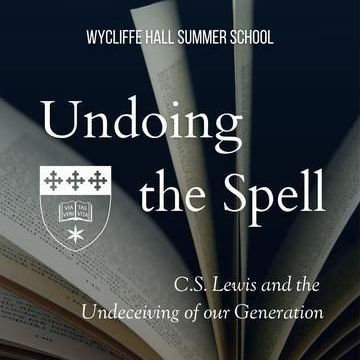On Forgiveness & Matthew 18 (My First Sermon in Texas)
As our season in Houston comes to an end, here's the first sermon I ever gave at St. Martin's. It's from September 14th, 2014, looking at Matthew 18 and forgiving as we have been forgiven.
A few weeks ago I heard an interesting news story about generosity. At a drive-through Starbucks in Florida, a woman purchased a drink for herself but then also paid for a coffee for the person in the car behind her. One simple act of generosity. But it didn’t stop there. The gift was passed on. The person who received the free drink bought another free drink for the next person in line, and so it continued. Throughout the day a total of 378 people bought a drink for a total stranger through the initial thoughtful and generous act of one woman.
I wonder what acts of generosity you’ve known. I wonder if someone has bought you dinner, blessed you with a gift, maybe they loaned you a car at a time of need, or paid a bill for someone when they couldn’t cover it. I wonder whether you’ve known the humbling experience of being given something, a gift of time, money or service, which you couldn’t have done for yourself, or at least not without cost.
Peter’s question at the start of the reading from Matthew is really about the subject of generosity. “How often should I forgive?” How much is enough? How generous should I be? He asks. And, to be fair to him, he tries to be a good example. He offers the perfect number of seven as the model. You can almost hear the enthusiasm in his voice. "As many as seven times?" I wonder if he was hoping that he got it right for a change, trying not to get caught out by just saying two or three. Seven sounds good. Surely seven is enough?
But the question Peter asks, by its very nature, gets it wrong. He’s trying, but he doesn’t get it. As soon as he asks "How much?" he’s expecting a limit. A formula. It’s understandable. Give me a figure to work with, Jesus. I need something to go on, a formula to run with.
It’s a question we often ask.
But we know that Jesus doesn’t deal with formulas, he deals with people. And his response exposes the heart of Peter’s problem and leaves us with a challenging reality.
(1) Generosity in forgiveness knows no limits.
Jesus’ responds by saying not 7 times, but 77. In other words, Peter, it’s not about numbers. And then he tells a parable.
He tells the story of a servant who has an enormous debt cancelled. This servant had a debt of 10,000 talents. That’s roughly equivalent to all the income tax Herod the Great would have received from his whole empire for over ten years. That’s a pretty unthinkable number for the disciples to imagine. One rough equivalent in US dollars would put it at over 2 billion dollars. It was no small sum. It was not just having your school loan paid off, or your mortgage covered. It was certainly more than having a coffee bought for you in Starbucks. It verges on the ridiculous – how could the servant have got into such an enormous amount of debt in the first place? But, nonetheless, the master foregoes his anger, and sets the man and his family free from any compulsion to pay. He gets to go completely free.
I don’t know about you, but I find this a difficult level of generosity hard to comprehend.
Jesus’ response puts Peter’s question in a bigger picture. This is not a numbers game. If you’re dealing with numbers, you’ve got caught up in the detail and missed the point. Look how generous God is towards us. If we truly have grasped this, then we will pass it on. If we don’t pass it on and harbor bitterness, have we truly grasped it? And that's an important question...
(2) Have we really come to terms with the extravagance of God’s cancelling of our sins?
It’s very easy to say with our lips that we are a forgiven people. We say words of confession and hear the absolution proclaimed to us. But do we know God’s forgiveness deep within our hearts? Do we know that whatever we have done, whatever the extent of how we have hurt, betrayed and overlooked the needs of others, we can be forgiven?
Sometimes we don't want to face this level of generosity. We reduce God’s forgiveness to being somehow only because ‘on balance’ we do okay and it becomes contingent on whether we get it right next time. We might tell ourselves that in the grand picture of who we are, God doesn’t have to forgive too much.
Or we might only accept it in certain places in our hearts and only let it reach in so far. God can forgive this bit of me, but not the mess I try to hide.
Brennan Manning wrote a wonderful book called "Abba’s Child." In it he describes two selves – the imposter and the child. The imposter is the false self we build up. It’s the self that says the right thing, knows how to get what it wants, it knows what it should do to be accepted and does it. It’s the mini-Pharisee that sits within us all. Then there is the child. The real self that says what it thinks, feels freely, doesn’t always do what its told and is fully herself.
I think this is a good picture for thinking about how we reduce God’s forgiveness. We think he forgives the imposter alone. The Pharisee who’s broken a few rules, but generally does well. When in truth God wants to reach out to the child and show us his generous forgiveness and love, even in the face of the worst of our broken and sinful lives.
(3) If we get truly start to grasp the generosity God has shown us, it liberates us to pass it on.
As people who are forgiven we become people who forgive. I don’t know about you, but if I were the 299th person in that Starbucks line, I’d feel pretty obliged to be generous. I’d feel it was the right thing to do, and the social pressure of not wanting to break the chain would make me do it. It wouldn’t be from liberation but from compulsion and obligation. But with God, it’s all about liberation.
If we don’t get it we’re in danger of becoming like the servant in Jesus’ parable. Having been freed and sent on his way, what does he do? He goes and seizes a fellow-servant who owes him the equivalent of a few thousand dollars. He grabs him and demands the debt, and even when he’s asked for mercy, he refuses and throws the fellow-slave in prison. And as a result, the master summons this unforgiving slave back, revokes his forgiveness and hands him over to be tortured until he pays the debt. The message is clear enough.
Forgive us our sins as we forgive those who sin against us.
The problem is that forgiveness is still hard because people have hurt us. They let us down and betray us. We experience real resentment, real pain and real anger. So do we just shrug the hurt off and move on? Do we just say "I forgive you" and forget about it?
Flick a forgiveness switch and be done?
Obviously it’s not always that simple. The fact that Jesus says at the end of the Matthew 18 that forgiveness should come from the heart tells us that much. Forgiveness must be real. It’s not just an external, superficial excusing of bad behavior. Forgiveness honestly confronts the sin, but ultimately lets go of hostility and, where possible, moves towards reconciliation. Just as God has done with us. C.S. Lewis in an essay on forgiveness writes
“Real forgiveness means looking steadily at the sin, the sin that is left over without any excuse, after all allowances have been made, and seeing it in all its horror, dirt, meanness, and malice, and nevertheless being [wholly] reconciled to the person who has done it.”
It doesn’t avoid the reality of the damage, but it doesn’t stop there. It acknowledges the fall-out of the sin, but then in time moves beyond it into a place of peace both in our own hearts as well as through reconciliation with the other person.
Sometimes we can do this quickly and easily, we just need to swallow our pride and confess our lack of generosity. Other times it takes a while and needs to be taken a day at a time. In order to either, but especially the second, we need the prayer and support of our friends and spiritual mentors. We need space to struggle to let go. Forgiveness is not like blowing out candles on a birthday cake. It's not taking one, big, deep breath and blowing out the candles all at once. It’s a marathon not a sprint. It’s an orientation of the heart not simply a one-time decision.
The parable Jesus tells reveals a stark contrast between the attitudes of the master and that of the servant. The master shows an extraordinary generosity and mercy to the servant in cancelling such a large debt, but we discover the servant does not do likewise. He is mean and ungrateful in his dealings with his fellow-servants. In a sense it stands as an ‘anti-parable’ – this shows us exactly who we don’t want to be like. But it also reminds us to refocus our eyes on the one who we do follow after, the God who has made our forgiveness possible through the ransoming of his Son as our payment. He has paid the debt.
The question for us then, is will we forgo our desire to keep score and limit our generosity? Do we, like Peter, ask how much is enough? Or will we follow Christ in the costly path of forgiveness and show generosity to others from the extravagant forgiveness we have been shown?
******



